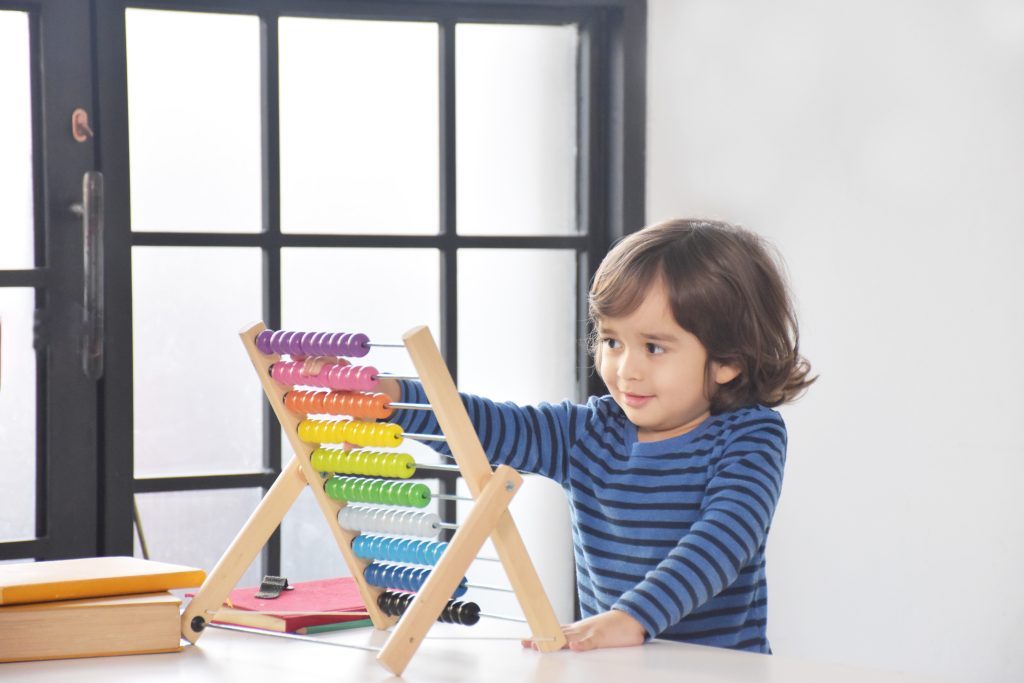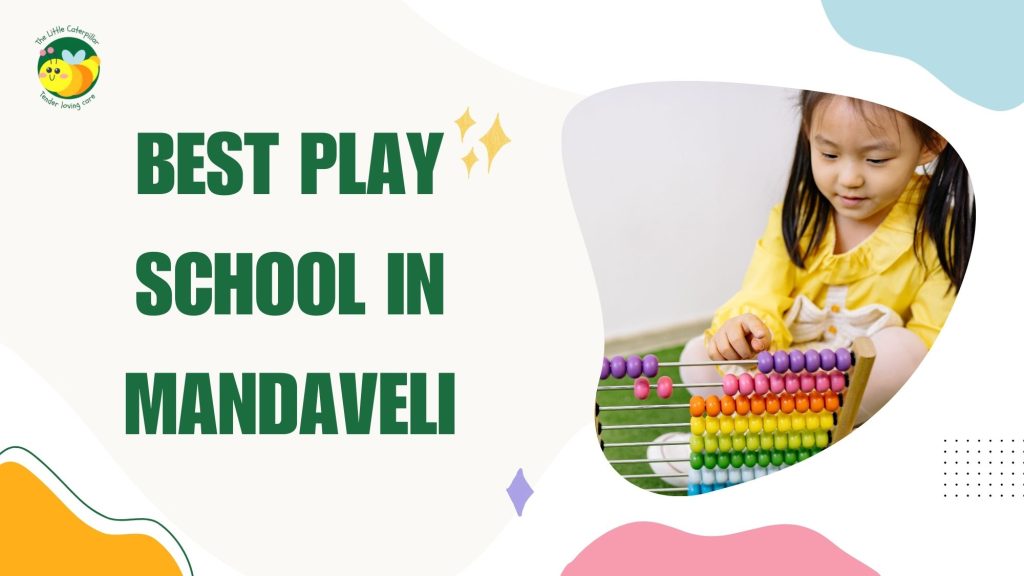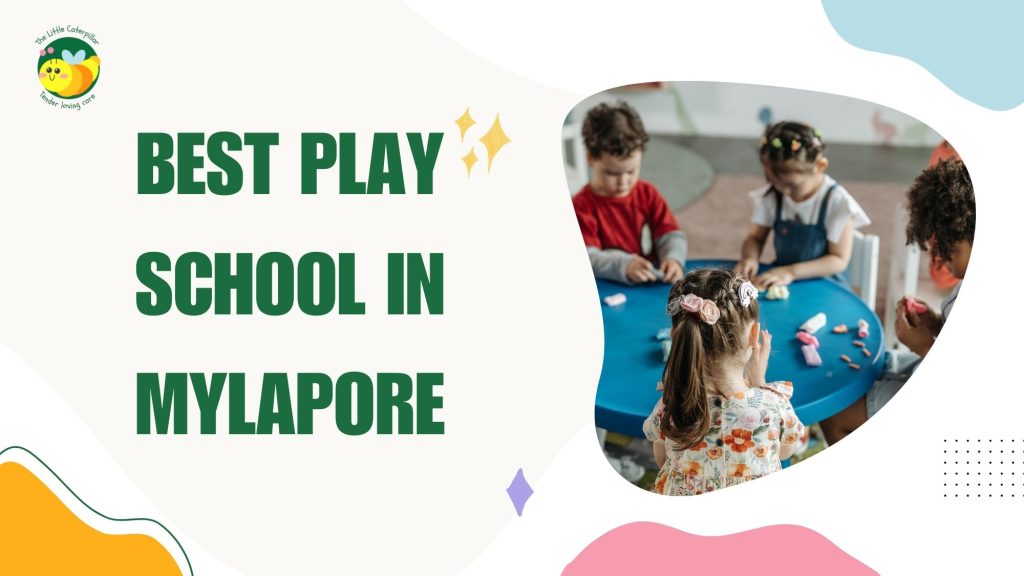Table of Contents
Little Caterpillar Playschool in Chennai – catering to toddlers 1.5 yrs to 4 yrs
Introduction
Early childhood education is a crucial phase in a child’s development, laying the foundation for future learning and socialization. Play schools, also known as preschools or daycare centers, play a pivotal role during these formative years. Understanding and meeting the expectations of parents regarding their toddlers’ experience in play schools is essential for fostering a positive learning environment.
Educational Philosophy and Curriculum
Parents often have diverse expectations regarding the educational philosophy and curriculum of play schools. Educational philosophies such as Montessori, Reggio Emilia, and Waldorf offer different approaches to early childhood education, each emphasizing unique aspects of child development (Miller, 2020). Parents may prefer a play school that aligns with their beliefs about learning, creativity, and socialization.
The curriculum should be designed to promote holistic development, including cognitive, social, emotional, and physical skills. It should incorporate age-appropriate activities that stimulate curiosity and foster a love for learning (Ginsburg, 2007).
Safety and Security Measures
Safety is a paramount concern for parents entrusting their toddlers to a play school. Effective safety measures include secure premises, trained staff, emergency protocols, and hygiene standards (Pratt & Hockenberry, 2017). Play schools should implement policies that reassure parents of their child’s well-being while in care.
Qualifications and Training of Staff
Parents expect play school staff to be well-trained and qualified in early childhood education. Qualified educators understand child development principles and are skilled in managing age-appropriate activities (Bowman et al., 2001). Continuous professional development ensures that staff remain updated with the latest educational practices.
Communication and Parental Involvement
Clear and regular communication between play schools and parents is vital. Parents appreciate updates on their child’s progress, behavior, and activities. Effective communication channels, such as newsletters, parent-teacher meetings, and digital platforms, facilitate parental involvement in their child’s learning journey (Pomerantz & Moorman, 2010).
Physical Environment and Facilities
The physical environment of a play school should be safe, stimulating, and conducive to learning. Facilities such as play areas, classrooms, sanitation facilities, and nutritious meal options contribute to a positive educational experience (Saracho & Spodek, 2008). Parents expect play schools to provide a nurturing environment where their toddlers can explore, play, and learn comfortably.
Social and Emotional Development
Parents value play schools that prioritize social and emotional development. Programs promoting empathy, cooperation, and emotional regulation prepare toddlers for future social interactions (Denham & Brown, 2010). Positive relationships with peers and caregivers enhance a child’s sense of belonging and emotional well-being.
Cultural and Ethical Values
Cultural diversity and ethical values are integral to early childhood education. Play schools should celebrate cultural diversity, teach respect for differences, and instill ethical values such as kindness and fairness (Swain & Warner, 2015). Parents seek play schools that promote inclusivity and ethical behavior among toddlers.
Assessment and Progress Tracking
Parents expect play schools to monitor their child’s progress and development. Age-appropriate assessments, observations, and progress reports provide valuable insights into a child’s learning journey (Linder & Yan, 2014). Transparent assessment practices help parents understand their child’s strengths and areas for improvement.
Challenges and Solutions
Despite efforts to meet parental expectations, playschools may face challenges such as funding constraints, staffing issues, and diverse parental preferences. Solutions include collaborative partnerships with families, professional development for staff, and adaptive educational practices (McCartney & Phillips, 2006).
Conclusion
In conclusion, playschools play a crucial role in meeting the expectations of parents regarding their toddlers’ early childhood education. By aligning educational philosophies, ensuring safety, maintaining qualified staff, fostering communication, providing a stimulating environment, promoting social-emotional development, celebrating cultural diversity, implementing transparent assessments, and addressing challenges effectively, playschools can create enriching learning experiences for toddlers.
References
- Bowman, B. T., Donovan, M. S., & Burns, M. S. (Eds.). (2001). Eager to learn: Educating our preschoolers. National Academies Press.
- Denham, S. A., & Brown, C. (2010). “Plays nice with others”: Social-emotional learning and academic success. Early Education and Development, 21(5), 652-680.
- Ginsburg, H. P. (2007). The importance of play in promoting healthy child development and maintaining strong parent-child bonds. Pediatrics, 119(1), 182-191.
- Linder, T. W., & Yan, Z. (2014). Young children’s learning with digital media. Computers in Human Behavior, 30, 145-150.
- Pratt, J., & Hockenberry, M. (2017). Safety in child care: The protection of children in play schools. Child Welfare, 96(2), 73-91.
- Pomerantz, E. M., & Moorman, E. A. (2010). “I am too busy”: The impact of time demands on father involvement. Journal of Research in Childhood Education, 24(1), 41-53.
- Saracho, O. N., & Spodek, B. (Eds.). (2008). Contemporary perspectives on early childhood education. Information Age Publishing.
- Swain, J. E., & Warner, R. L. (2015). Neurobiology of parenting: Scientific and clinical perspectives. Academic Press.



